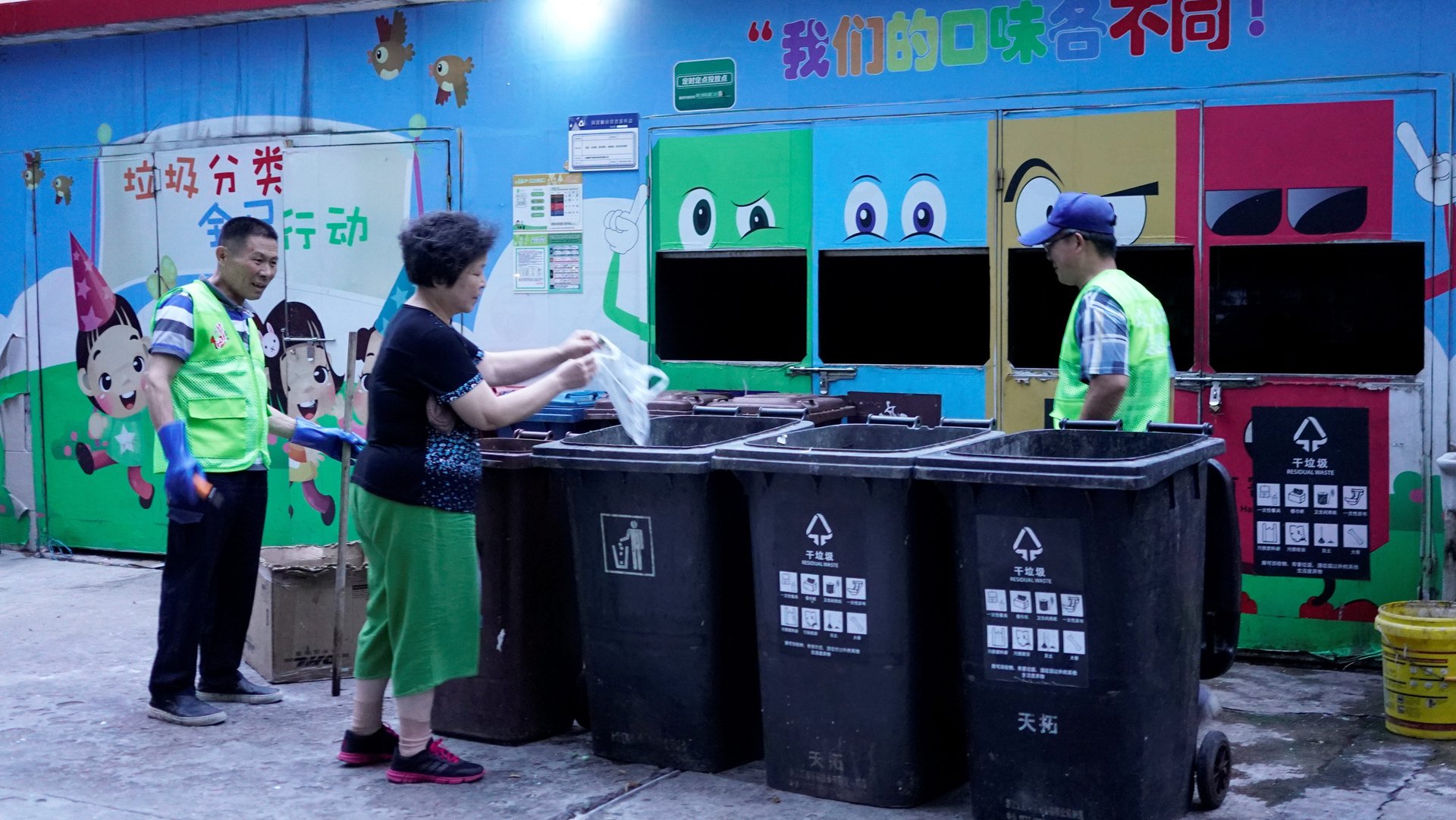In China, facial-recognition technology is being deployed to take out the trash
China’s biggest tech giants have a message for city residents driven crazy by the country’s strict new trash-sorting rules: there’s an app for that.


China’s biggest tech giants have a message for city residents driven crazy by the country’s strict new trash-sorting rules: there’s an app for that.
As part of a national effort to help the country improve its low recycling rates, Shanghai ushered in new rules this month that require people and businesses to separate trash into four categories—or face fines for getting it wrong. The rules spurred a massive discussion on social media, sending the phrase “what kind of rubbish are you?” trending.
Now Alipay, the mobile payment arm of Chinese fintech giant Ant Financial, has a new mini-app that uses the same image-sorting artificial intelligence that’s behind facial recognition and adapts it to trash. The company said yesterday (July 15) that the program allows users to scan waste items using the cameras on their smartphones and informs them which category—wet or dry, recyclable or harmful waste—the trash belongs to.
Overall, Alipay offers more than 70 mini-programs related to trash sorting, including an e-commerce option—Ant was spun out of e-commerce giant Alibaba after all—to help people sell recyclables from their homes.
Alibaba’s e-commerce competitor JD.com has also developed an open-source trash-sorting program using image recognition that other businesses can adapt. Meanwhile, it’s giving household users a voice-based app to which they can pose questions about their trash, the company told Quartz.
JD’s opening its image recognition for other businesses to sort garbage. JD didn’t say how many have adopted the technologies since it rolled out the program in July.
Shanghai is not the only city in China to implement the trash-sorting rule—45 cities (in Chinese) are supposed to implement this rule by the end of 2020, including capital Beijing. China lags behind neighbors like South Korea when it comes to recycling rates.
Some neighborhoods in China’s capital have already made a start—with the help of technology, of course. A residential community in Beijing’s Xicheng district, for instance, is using facial recognition to allow residents to open trash bins for different kinds of trash, and to earn points after classifying the trash successfully. Residents can then use the points to exchange them for goods.
Echo Huang contributed to this post.